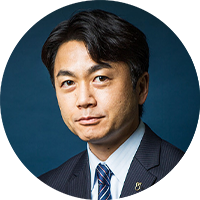Coach's VIEW is a business column authored by executive coaches in COACH A, aimed at providing valuable insights and effective approaches for leveraging coaching to foster organizational and leadership development. The column draws on the latest coaching trends and data, as well as insights from notable global publications on coaching.
The Prescription for the Time When You Begin to Feel the Decline - Prepare for the Next Long Journey in Your Career

"I am having trouble remembering things, I can not remember names..."
As we grow older, it is common to notice a decline in performance in various aspects of life. As I am approaching 50 years old, I can relate to experiencing these signs in small moments.
You possess the ability to remember things swiftly, prioritize what truly matters, excel at finding solutions, and outperform those around you.
Those who excel in this capacity, which experts refer to as "Fluid Intelligence", achieve results from a young age, fulfill company expectations, and attain status. However, there seems to be a peak in our performance. Research suggests that there is a trend among professionals in various fields when it comes to the decline in performance. Physicists tend to experience a decline in innovative discoveries and inventions around the age of 50, while scientists see a similar decline around 46, and medical scientists around 45. Writers, on the other hand, may experience a decline in performance between the ages of 40 and 55, while financial professionals tend to reach their peak between 36 and 40. This pattern is not limited to knowledge work; skilled labourers such as mechanics and office workers also tend to peak between the ages of 35 and 44*.
The decline in performance observed in various professional fields is thought to be influenced by the changes in the brain organization, particularly in the central functions that support execution skills, concentration, and core skills. Such biological changes can have significant impacts on the different aspects of our lives, including our work roles, career paths, organizational dynamics, and relationships. As a result, we may experience transitional periods that feel unstable, which psychologists refer to as "liminality." These liminal periods typically occur between the ages of approximately 35 and 50*.
How we approach this liminality may determine our possibilities later in life. In this article, I would like to explore this subject.
Navigating Liminality
Liminality, being a biological change, is an inevitable part of life. The key lies in how we approach and navigate this transitional phase.
For individuals who have been recognized for their work and have achieved social status, it is particularly challenging to accept the fact that their performance is declining. It signifies losing the very reason why they have been valued by their organizations. The corporate system, designed to prioritize growth potential, often creates pressure for individuals to depart when their performance no longer matches past achievements.
As a result, many individuals strive to continue operating in the same manner that earned them recognition in the past. However, there is such a warning message from a study:
"Those who pursued power and performance in their careers tend to experience greater dissatisfaction in retirement compared to those who did not."
Ken, who was aspiring to become the CEO of an Asian region company, expressed his anger and sadness in a coaching session. He said, "I am not convinced why I was not chosen. I cannot sleep, and even if I did, the moment I wake up, the thoughts immediately come back to my mind and my anger boils over. Why is the company giving up on me? What has it been all about?" One can only imagine the pain of suddenly being pronounced as "not chosen" for someone who has always been chosen.
Redesigning Your Life
Ken and I engaged in a series of dialogues centered around how he envisioned contributing to both the company and society in the future. Throughout our discussions, he expressed a recurring desire to return to the past and even contemplated resigning from his current position. Ultimately, however, he made the decision to chart a different course--one that would involve dedicating himself to the betterment of the company and society in a manner different from seeking promotion and advancement.
Although Ken had relinquished his pursuit of power and achievement in the workplace, he still seemed to have some lingering attachment to his past aspirations. Nevertheless, he committed himself to earnestly learn to coach, expressing a desire to utilize his capabilities for the benefit of those around him moving forward. Interestingly, it is not uncommon for individuals who have undergone coaching themselves to embark on a journey of learning to coach. Initially, I find this pattern perplexing, but recently, it has become more apparent as a natural progression.
While fluid intelligence tends to decline in one's 30s and 40s, there is another cognitive ability that is known as "crystalline intelligence" which continues to develop and expand during the mid to late adulthood. This form of intelligence involves the capacity to derive meaning and utilize knowledge and experiences, ultimately leading to the development of wisdom. It is acquired through cultural adaptation and ongoing learning*.
When we perceive coaching as a process of co-creating new meaning through dialogue with clients, it becomes evident that this is precisely the type of work that can harness the power of crystalline intelligence. By applying our accumulated wisdom, we have the opportunity to contribute to individuals in a profound way. It is this potential that often motivates individuals to embark on the journey of learning to coach. By embracing and leveraging our crystalline intelligence, we can make a meaningful impact on others through coaching, drawing upon our wealth of knowledge, cultural adaptation, and life experiences.
What Lies Beyond Liminality
When we have the courage to redesign our lives around a different set of abilities, as Ken did, we open ourselves up to new possibilities. However, the most challenging aspect lies in our ability to accept the reality. It requires acknowledging the decline in our fluid intelligence, embracing and confronting the diminishing performance, relinquishing our reliance on work and external success, and releasing our attachment to others' opinions of us.
It is not uncommon to hear voices expressing a sense of diminishing self-respect and the attention of others shifting away during these transitional periods. This can evoke feelings of sadness and a sense of being quietly pushed aside. Nevertheless, among my clients, I have encountered voices that resonate with resilience and strength. These are the voices of individuals who have confronted liminality head-on and emerged stronger from their challenging experiences.
"I felt like I was flailing around at the time. I was really scared because I did not know what was going to happen. But I think I was only thinking about myself at that time. I realized now that the young people by my side are so precious. Recently, I have come to understand people's feelings and listen to what they want to say better. I feel that I have become more sensitive."
Even if you experience a setback during a transitional period, if you can overcome it, 90% of the time that transitional period will be a good experience*.
If you want to go fast - go alone! But if you want to go far - go together.
This is an African proverb. In the final stages of life, it is probably a good idea to share the journey with someone. In fact, I myself have a coach to talk about my future.
* * *
Cicero mentioned about how to live after one gets older *.
That I should devote myself to service
To enrich others with the worldview (wisdom) that comes from learning and thinking
To advise and educate others
We must confront the fear of letting go of the reasons why we have been needed. We will shift our focus towards developing a new intelligence, known as crystalline intelligence, and embark on the journey of creating a new self that can contribute to others. When we become aware of our liminality, it can be seen as an opportunity to start anew.
【REFERENCE】
Arthur C. Brooks (Author), Chisato Kimura (Translator),From Strength to Strength: Finding Success, Happiness, and Deep Purpose in the Second Half of Life (English Edition), p.23, p.32, p.227, p.39, p.48, p.231, SB Creative, February 2023
*Regardless of profit, non-profit or intranet, secondary use such as copying, diversion, selling etc. is prohibited without permission.
Language: Japanese

